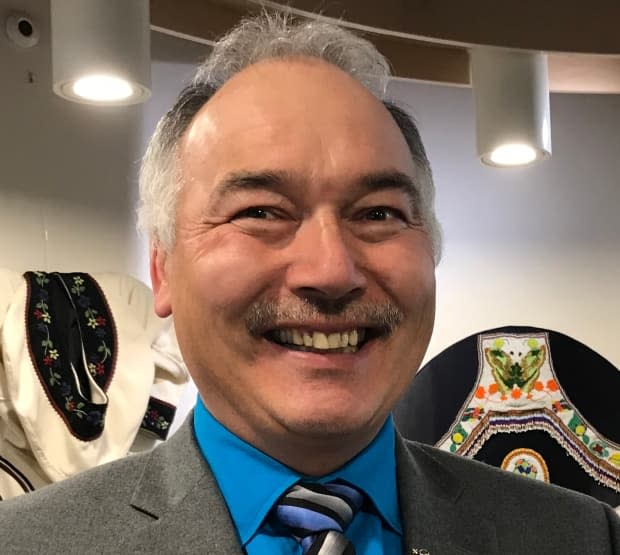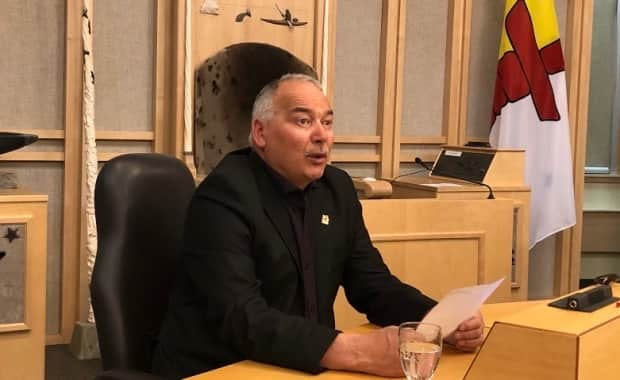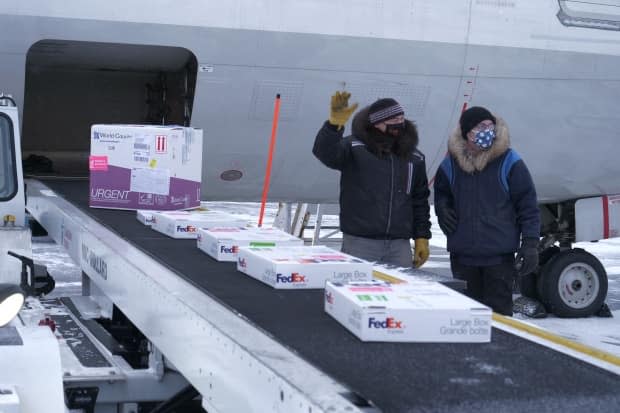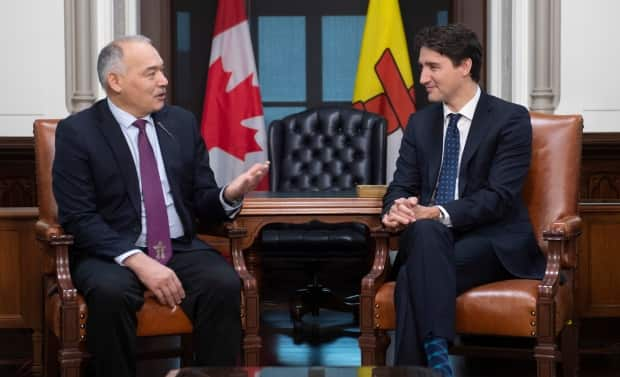Joe Savikataaq reflects on COVID-19, ransomware and 3 years as Nunavut's premier

Looking back on over three years of leading Nunavut, Joe Savikataaq, the territory's former premier, says he wouldn't have changed much.
"I think we did the best we could, under the conditions that we had," he told CBC over the phone from the Iqaluit airport. He'd recently packed up his office in Iqaluit to move back to his home riding, Arviat South.
Savikataaq was elected by MLAs to be premier of Nunavut in June 2018, after the premier at the time, Paul Quassa, was ousted.
"When I was chosen to be the premier of Nunavut, I was very happy, very honoured, and very humbled that MLAs trusted me to lead this beautiful, harsh territory of ours," Savikataaq said.

During the recent territorial election, there was no race within his South Arviat constituency: Savikataaq was acclaimed to his seat Sept. 20. He then set his sights on running for premier again.
However, at the leadership forum earlier this month, MLAs elected PJ Akeeagok premier by secret ballot. (There are no parties in Nunavut's consensus government. Instead, all MLAs run as Independent candidates, then the premier and cabinet are selected from among the MLAs in a secret ballot during a special leadership forum).
A turbulent term
The former premier could perhaps be remembered for leading the territory through two historic crises — first the ransomware attack in November 2019 that shut down the government computer system. And the second, leading the way through nearly two years of the COVID-19 pandemic.
"It was tough times when the ransomware hit," he said.
During the crisis, all territorial government computers ceased to work, including emails. Savikataaq said his government had to set up a parallel system so they could get back to providing critical services like income support, renewing driver's licences and medical travel.
"I think we should all be very thankful that we had such hard working, knowledgeable people to do that," he said.
Then, nearly right after, the COVID-19 pandemic hit.

"That was scary times," he said. "We didn't have any manuals or a playbook on how to deal with a pandemic. So we more or less learned as we went."
That included making "lots of tough decisions with the best knowledge we had at the time."
Nunavut had managed to avoid any cases for almost one year, during which time he said, the medical community and in turn his government, learned a lot more about COVID-19, along with how it spreads.
"We always knew that it was going to come into Nunavut," he said. "That had given us time, made us more prepared on how to deal with it."

Savikataaq said he realizes the isolation hubs in southern cities — where travellers to Nunavut, including returning residents, were asked to isolate for 14 days to make sure they weren't carrying the virus — were not very popular, and for some people, were hard to endure.
Looking back, he thinks "that's what saved Nunavut from getting the full blunt force of COVID-19 pandemic." That was especially important, he added, before vaccines were available.
"Even compared to the ransomware [attack], COVID has been the biggest challenge and the most expensive challenge that we have had," he said. "No premier in Nunavut history or government has had to deal with a pandemic like this."
The 'pinnacle' of his career
When asked what more he could have done during his tenure, Savikataaq said: more housing to tackle the Nunavut housing crisis.
"But even with all of the challenges we had, we still managed to build [some] housing for Nunavummiut," he said.
Despite the turbulent time as premier — and "not gonna kid anybody, there were really tough times," he said — he's still thankful for the opportunity.
"It's the pinnacle, or the top of my working career," he said. "It has given me great pleasure, great sorrow, hard times, but I have thoroughly enjoyed it … I went to work early every morning, and I couldn't wait to go to work even during the pandemic. It has been a complete honour."

Savikataaq credits the support from his family and staff. "We did it and we made it," he said, of his team.
He said he has "full faith" that the new government will "do their best for the betterment of Nunavummiut."
Next up, Savikataaq will transition into his role as chairperson of full caucus — which includes all 22 MLAs. He said he'll use his experience as a regular MLA, being a minister for six years and a premier for over three, to "make sure that I make good sound judgment calls."
"Everyone will be treated equally and fairly," he said. "And, everyone will be able to voice their concerns and be heard."

 Yahoo Finance
Yahoo Finance 